Paul Oscher
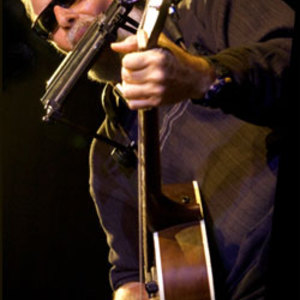
- Genre:
- Blues
- Meta styles:
- Chicago Blues, Early Acoustic Blues
- Styles:
- Chicago Blues, Regional Blues
PAUL OSCHER (1950.04.05/Brooklyn, NY - ) is an award-winning blues singer, songwriter, recording artist, and multi-instrumentalist, (harmonica, guitar, piano, melodica, and bass harp). He is married to Pulitzer Prize-winning playwright Suzan-Lori Parks. Paul Oscher first came to national attention as Muddy Waters' harmonica player between 1967-1972 following in the footsteps of Little Walter, Junior Wells, James Cotton and Big Walter Horton. Paul Oscher was the first white musician in the world to become a full-time member of a black blues band of this stature.
Paul Oscher first came to national attention as Muddy Waters' harmonica player between 1967-1972 following in the footsteps of Little Walter, Junior Wells, James Cotton and Big Walter Horton. Paul Oscher was the first white musician in the world to become a full-time member of a black blues band of this stature.
Paul started playing the blues at the age of twelve when his uncle gave him a marine band harmonica and was taught the rudiments of blues harmonica by Jimmy Johnson, a southern medicine show harp player. By the time Paul was fifteen he had hooked up with guitarist/singer Little Jimmy Mae and was playing professionally in soul revues at black clubs like the Baby Grand, The 521 Cub, Seville Lounge and the Nitecap.
In the mid-l960s Paul met Muddy Waters back stage at the Apollo Theatre and in 1967, when Muddy came to New York without a harp player, Paul sat in with the band. He played two numbers: "Baby Please Don't Go" and "Blow Winds Blow." Muddy hired him on the spot.
Working alongside blues greats like Muddy Waters, Otis Spann, Sammy Lawhorn, Pee Wee Madison and S.P. Leary, Paul learned the deep Blues phrasing and timing characteristic of his music today. Paul lived on the Southside of Chicago in Muddy Waters' house along with Otis Spann. Spann taught Paul the piano. Paul learned the guitar by looking over the shoulders of Muddy and Sammy Lawhorn.
While in Muddy's band Paul toured the US and abroad and played all kinds of venues from the rough and tumble juke joints of the chitlin' circuit to the major concert stages of the world and during that time backed up major blues artists such as John Lee Hooker, Earl Hooker, Son House, Fred McDowell, Lightning Hopkins, T. Bone Walker, Albert King, Magic Sam and Big Mama Thornton. Paul recorded a number of records with Muddy Waters for the legendary Chess Records label in Chicago. These recordings and live performances would influence an entire generation of young players. Paul remained in Muddy's band till the end of 1971 when he left to form his own band using the name Brooklyn Slim.
In 1976, Paul toured Europe with Louisiana Red and continued playing with his own band in the New York area as well as backing up Big Joe Turner, Doc Pomus, Victoria Spivey, Big Walter Horton and Johnny Copeland.
In the 80s, Paul quit music - he'd gotten tired of the life and the disappointments - and got a day job. But he couldn't stay away from the blues for long and in 1992 hooked up with piano players Dave Maxwell and Bob Gaddy and his old drummer Candy MacDonald and started playing again. His career took off. He recorded several tapes for Mojo Productions and Lollipop Records Under the name Brooklyn Slim.
In 1994, Paul toured in the US with Jimmy Rogers and the Muddy Waters Tribute Band. In 1995 he recorded his first CD, The Deep Blues of Paul Oscher for Blues Planet records which led to a second CD with Viceroy Records, Knockin' on the Devils' Door and a W.C. Handy Award Nomination. Paul started touring the US and abroad with his own six-piece band. Since that time Paul has recorded more CDs in his own name and has appeared on other artists' recordings and on videos and movie soundtracks.
In 1999, Paul performed at the San Francisco Blues Festival with Carey Bell and Jerry Portnoy in a show titled "The Super Harps of Muddy Waters" and traveled to Europe with Willie "Big Eyes" Smith.
In October 2000, Paul Oscher won the L.A. Music Award for "Outstanding Blues Artist of the Year".
Paul is now touring as a solo artist or in a trio setting. His "Alone with the Blues" show, featuring Paul on harmonica, bass harmonica, guitar and piano, has received rave reviews from blues fans, musicians, press, promoters and club owners. As a songwriter, his songs have been covered by Alligator recording artists Little Charlie & the Nightcats and Blind Pig recording artist Big Bill Morganfield.
2004 was a busy and very productive year. Paul's Alone with the Blues album for the Electro-Fi label, was released on May 18, 2004 and was nominated for FOUR 2005 W.C. Handy Awards: "Acoustic Blues Album of the Year", "Acoustic Blues Artist of the Year", "Harmonica instrumentalist of the Year", and "Blues song of the Year".
Paul also appeared on Mos Def's CD New Danger released Oct 12, 2004 on the Geffen label. Paul is also a featured guest artist along with Mickey Champion and Johnny Dyer on The Mannish Boys' 2004 Delta Groove release That Represent Man. Paul also appears on Mark Hummel and Johnny Dyer's tribute to Muddy Waters CD Rollin' Fork Revisited released Nov 2004 on Mountain Top records.
In January 2005, the long awaited Hubert Sumlin CD About Them Shoes was released on the Tone Cool/Artemis label and features Paul along with Eric Clapton, Keith Richards, Levon Helm and others. This album garnered a Grammy nomination and won a Blues Music Award for "Traditional Blues Album of the Year".
Paul's release Down in the Delta, won two 2006 Blues Music Awards (formerly W.C. Handy Awards); "Acoustic Album of the Year" and "Acoustic Artist of the Year".
Paul is currently in the process of writing a book about his life's experience in the blues, some of which has already been quoted in extensive interviews for Sandra Tooze's book about Muddy Waters, Mojo Man, and Robert Gordon's book about Muddy Waters, Can't be Satisfied. An excerpt of Paul's book appears in the companion book to the PBS series Martin Scorsese Presents the Blues.
As Muddy Waters' harp player Paul Oscher inspired a whole generation of blues players including Rick Estrin, Jerry Portnoy, Paul Delay, and William Clark. Paul Oscher is the real deal, he learned his blues from the Masters. He plays only the real, unadulterated, down-in-the-alley, gut-bucket blues. He is not a retro player; he just plays the blues the way he learned them?lowdown and lonesome and has been doing so for the last fifty years.
- Sort by
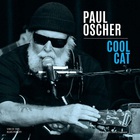
Cool Cat
- Year:
- 2018
- Tracks:
- 13
- Bitrate:
- 320 kbps
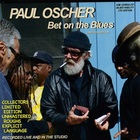
Bet On The Blues (Limited Edition)
- Year:
- 2010
- Tracks:
- 15
- Bitrate:
- 320 kbps
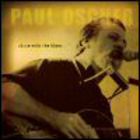
Alone With The Blues
- Year:
- 2004
- Tracks:
- 17
- Bitrate:
- 153 kbps
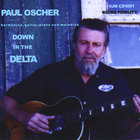
Down In The Delta
- Year:
- 2004
- Tracks:
- 14
- Bitrate:
- 192 kbps
 Charlie Musselwhite
Charlie Musselwhite  Paul Butterfield
Paul Butterfield  Bob Margolin
Bob Margolin  Kim Wilson
Kim Wilson  Johnny Winter
Johnny Winter  Rick Estrin
Rick Estrin